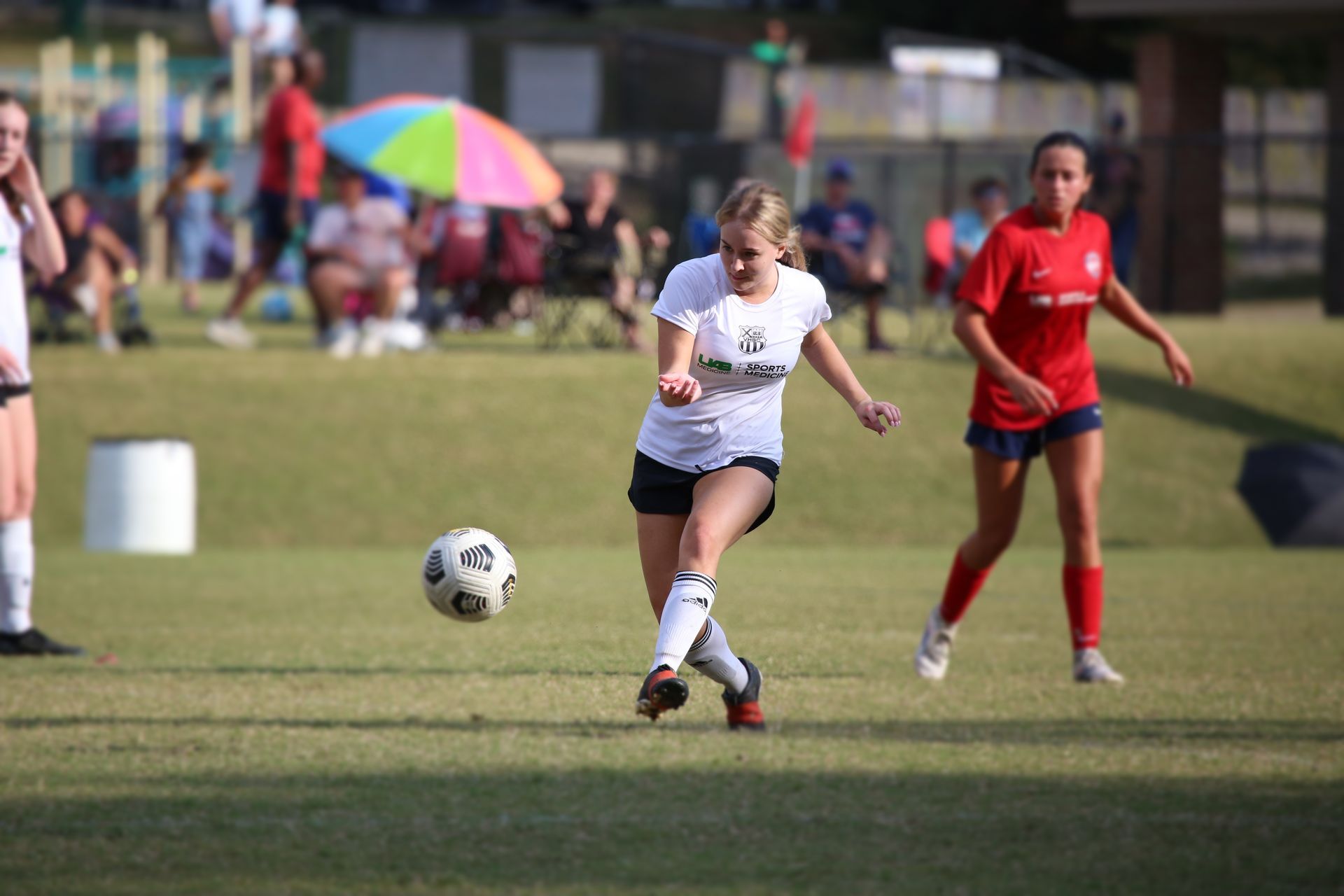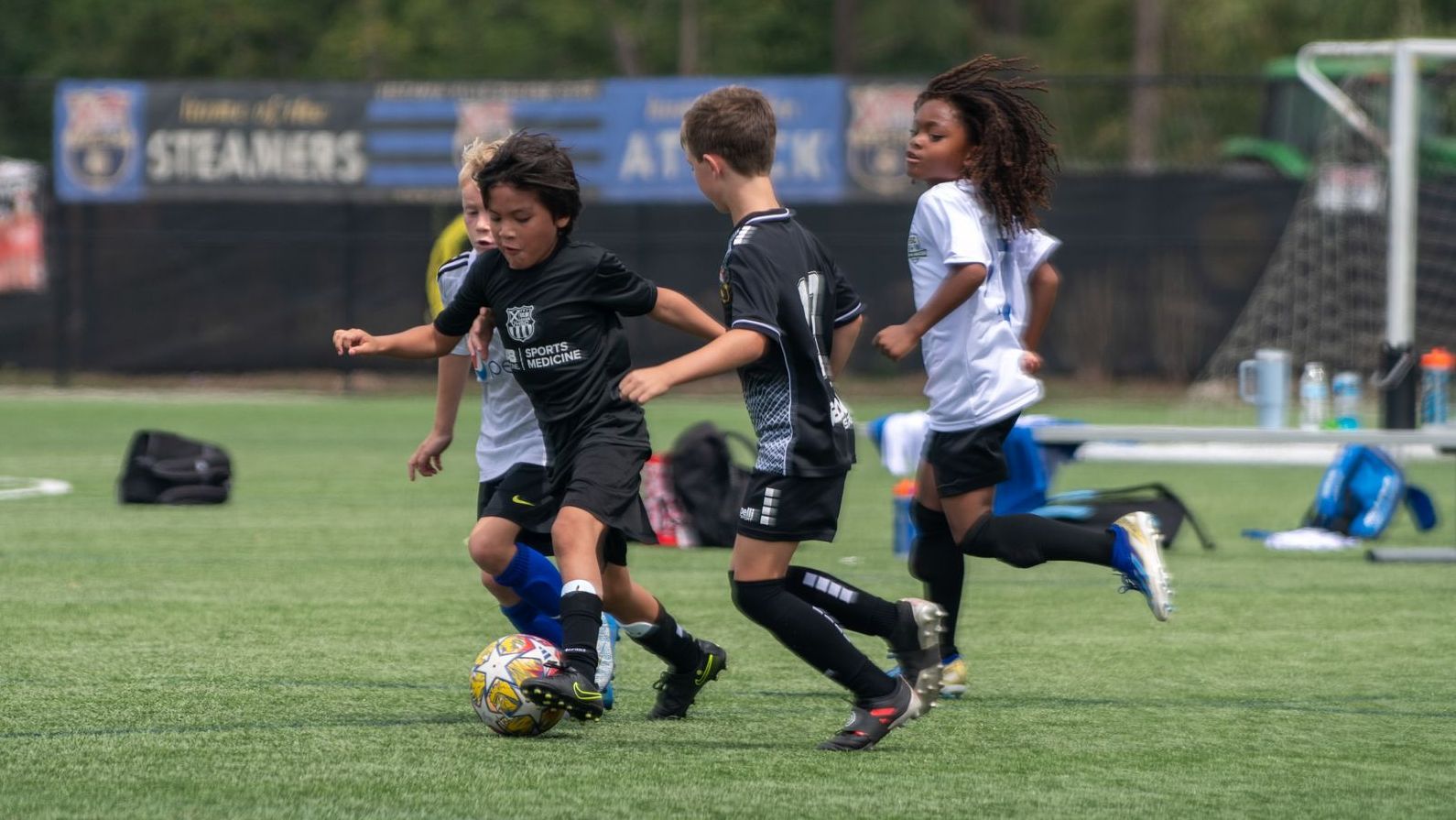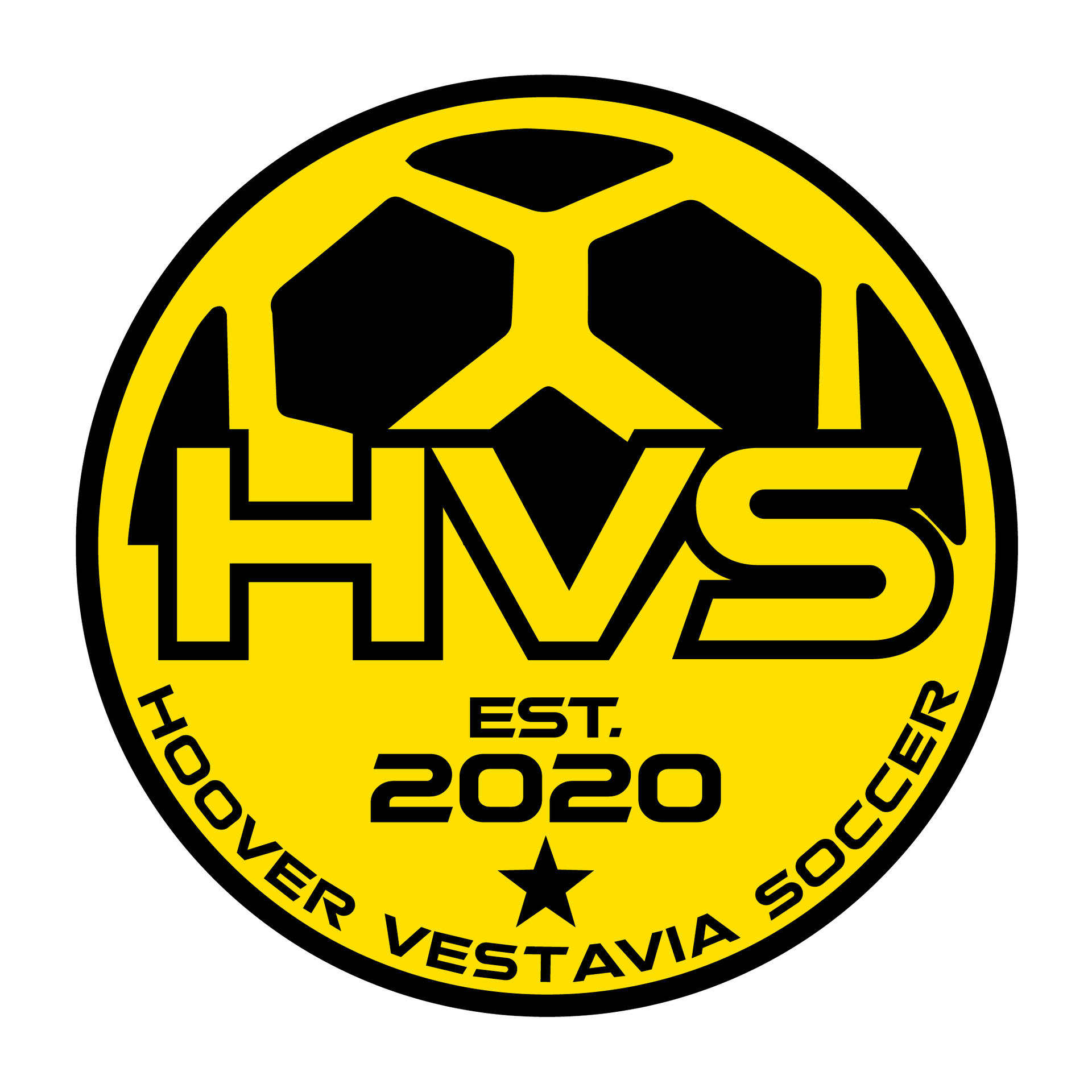Supporting Your Child's Soccer Journey
Tools, Tips, and Guidance to Help Your Player Thrive On and Off the Field

Parent Resources: Match Day Guide
At
Vestavia Hills Soccer Club, we know that parents play an integral role in their child’s soccer journey.
Match day isn’t just about dropping your child off—it’s about creating a
positive and supportive environment that helps them thrive both on and off the field. Here’s how you can make match-day a meaningful experience for your child...
Soccer glossary of terms
Click for more infoSoccer is a global sport accessible to all with just a ball and open space. Recreational soccer emphasizes fun and basic skills, while competitive play focuses on discipline, teamwork, and strategy. Understanding terms like “assist” or “penalty kick” enhances enjoyment. Soccer builds confidence, resilience, and social skills, fostering lifelong fitness. Its global nature connects players across cultures, making it both a developmental tool and a bridge to diverse communities.
Be a source of positivity
Encourage your child with positive reinforcement, whether they’re a star player or simply enjoying the game. A simple “Well done!” can go a long way in building their confidence.
Let them play their game
Avoid coaching from the sidelines. Your child is likely following their coach’s instructions, so let them focus on their role in the team without conflicting input.
Embrace mistakes as learning
Allow your child to make mistakes—they’re a crucial part of their development. Discuss their decisions calmly after the game to help them grow without adding pressure.
Support the whole team
Cheer for all the players on your child’s team. Fostering a sense of teamwork helps your child understand the value of camaraderie and leadership.
Respect everyone on the field
Whether it’s players, referees, or the opposing team, maintain respect for everyone involved. Remember, these are kids playing a game—they all deserve encouragement and fair treatment.
Trust the coach
Your child’s coach is there to guide the team. Avoid questioning their decisions during the game, and support their efforts to create a positive environment for all players.
Set a good example
Your behavior on the sidelines impacts your child. Demonstrate respect for referees, coaches, and other parents—your child will emulate your actions.
Focus on effort, not the result
Celebrate your child’s effort and improvement rather than wins or losses. Their growth as a player and a person is far more valuable than the final score.
Use the drive home wisely
Be a parent, not a second coach, after the game. Focus on their enjoyment of the match by asking, “Did you have fun?” instead of critiquing their performance. Let them lead any discussions about the game.

Parent Resources: At-Home Training
Training at home is essential for your child’s soccer growth, complementing team practices and matches. Encourage your child to prioritize
two key areas: kicking and juggling. Regular, focused at-home training not only sharpens skills but also fosters discipline, self-motivation, and a deeper love for the game, laying the groundwork for long-term success.
How much training does my child need?
Team practices and matches provide a foundation, but alone, they aren’t enough for players to reach their full potential. At-home training supplements this by giving your child the extra time to refine skills and build confidence.
Why training at home matters...
Studies show that children today are less active than previous generations. With only one in three children engaging in daily physical activity, incorporating soccer training at home can ensure your child meets recommended exercise levels while developing essential soccer skills.
Create a routine for success...
At-home training doesn’t have to be overwhelming...
Please help your child create a consistent practice schedule that complements their team training and matches. 20 minutes every other day working on their favorite move, skill, or shot will pay off before you know it!
You set the stage for their continued growth and enjoyment of soccer by fostering discipline and providing resources.
When is the best time to train?
Choose a time that fits your family’s schedule and keeps your child consistent in their routine.
- Before Dinner: Training before dinner allows your child to practice on an empty stomach and recover with a high-protein meal afterward.
- After Dinner: If you eat early, an hour of training before bed helps burn off energy and improves sleep quality.
What should my child do during practice?
Guided activities help children stay engaged and focused. Your child can use resources such as:
- Vestavia Online Training Skills Videos: Access specific drills and techniques VHSC provides to practice essential soccer skills.
- TopTekkers/DribbleUp: A player development app offering guided drills, challenges, and incentives like trophies and leaderboards to make training fun.
- YouTube: Explore soccer training videos to find age-appropriate drills for dribbling, passing, shooting, and more.
These tools provide a variety of activities and challenges designed for small spaces, making at-home training accessible and effective.
What skill should by child practice most?
As parents, your role in your child’s soccer journey is pivotal.
At its core, soccer is about running, running with the ball, and kicking it. Mastering these foundational elements is vital to long-term success in the field.
The Importance of Striking the Ball
If there’s one skill every player should prioritize, it’s the ability to strike the ball effectively. Encourage your child to practice kicking with:
- Accuracy: Hitting a target consistently builds precision and confidence.
- Power: Generating power while maintaining control is essential for passing, shooting, and clearing the ball.
- Variety: Using the inside of the foot for passing and laces for powerful shots ensures versatility in their game.
- In the Air: Developing the ability to strike the ball on the ground and in the air accurately opens up advanced techniques like crossing and finishing.
These skills are not only fundamental for current play but will pay dividends as your child progresses through higher levels of the game.
Simple Practice, Big Impact
When in doubt, encourage your child to:
- Run: Build endurance, agility, and fitness.
- Run with the Ball: Develop control, balance, and dribbling skills.
- Kick: Refine their striking technique under various conditions.
These simple yet critical components create a strong foundation for soccer success.
By supporting consistent practice and emphasizing the basics, you can help your child develop the skills and confidence they need to excel on their soccer journey. Let’s work together to unlock their potential on the field!
Juggling for growth and confidence
Juggling is one of young soccer players' most impactful yet often overlooked skills. It improves:
- Ball Control: Teaches players to keep the ball close and under control.
- Touch: Enhances the ability to receive and manipulate the ball with precision.
- Confidence: Mastering juggling gives players a sense of accomplishment that translates into better decision-making on the field.
If your child struggles with juggling, encourage them to start with a simple progression:
- Juggle-bounce, juggle-bounce until they can keep the ball in the air consistently.
Remember, all successful soccer players can juggle—it’s a fact!
Regular practice in juggling is a game-changer for player development.
Parent Code of Conduct
At Vestavia Hills Soccer Club, we believe that parents, players, coaches, and spectators all represent the spirit and values of our club. Your actions reflect on everyone involved, and we encourage all parents to exemplify the highest standards of sportsmanship. Together, we can create a positive and enriching environment for our players to grow, learn, and enjoy the game.
Key Principles of the VHSC Parent Code of Conduct
- Respect the Game and All Participants: Treat referees, coaches, players, and opposing teams with respect at all times. Applaud good plays by both teams and promote fair play.
- Be a Positive Role Model: Lead by example with your words and actions. Demonstrate sportsmanship and a love for the game, and avoid criticizing players, coaches, or referees.
- Cheer, Don’t Coach: While positive encouragement is welcome, sideline coaching is counterproductive and distracts players from their learning and decision-making on the field. Trust the coaches and trainers to guide the team.
- Respect Field Etiquette: Stand at least 15 feet from the sideline and avoid standing behind the goal lines. Parents and spectators should remain on the opposite side of the field from coaches and players whenever possible.
- Support Referees: Respect the authority of referees, even when mistakes occur. Harassment, abuse, or criticism of referees is not tolerated, whether during or after the match.
- Handle Concerns Privately: If you have concerns about coaching or training, address them in a private setting away from the field and players. Public criticism is inappropriate and disruptive.
What It Means to Be a Winner
- Help your child redefine success by focusing on their effort, improvement, and enjoyment of the game—not just the outcome. Mistakes are a natural part of learning, and every match is an opportunity for growth.
- Celebrate their hard work, fair play, and sportsmanship, regardless of the score.
Encourage the Spirit of Soccer
- At VHSC, we aim to foster a love for the game, instill respect for its laws, and inspire players to grow both on and off the field. As a parent, your role is crucial in shaping a positive experience for all.
Together, let’s make soccer a rewarding and joyful experience for every child.
Age Group Chart
| AGE | GRADE | BIRTH YEAR |
|---|---|---|
| U19 | 12/College | 2007's |
| U18 | 11th/12th | 2008's |
| U17 | 10th/11th | 2009's |
| U16 | 9th/10th | 2010's |
| U15 | 8th/9th | 2011's |
| U14 | 7th/8th | 2012's |
| U13 | 6th/7th | 2013's |
| U12 | 5th/6th | 2014's |
| U11 | 4th/5th | 2015's |
| U10 | 3rd/4th | 2016's |
| U9 | 2nd/3rd | 2017's |
| U7/U8 | 1st/2nd | 08/01/2017 - 07/31/2019 |
| U5/U6 | 4K/K | 08/01/2019 - 07/31/2021 |
| U3/U4 | Mini-Kicker | 08/01/2021 - 12/31/2022 |
The Age Group Chart matches your child’s date of birth (DOB) to the appropriate soccer program, ensuring placement that suits their age and development for a positive experience.


































